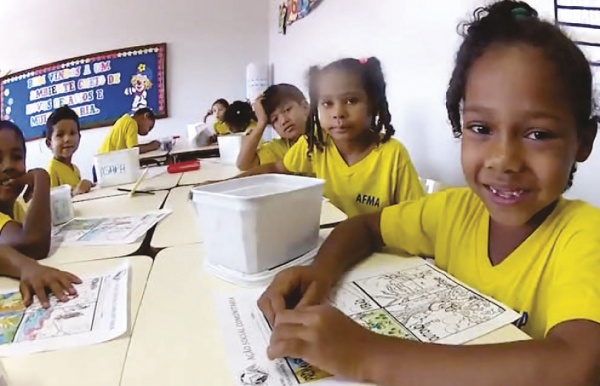PBF: Bolsa Familia Program
Programa Bolsa Familia aims to reduce poverty through direct cash transfers to families in order to fight hunger and promote food security. It attaches specific conditionality to family grants in order to reduce the intergenerational aspects of poverty. It also helps promote and increase families' access to health, social welfare, education, and social assistance networks.
Meets the criteria established under Health in All Policies:
- Political commitment. The PBF enjoys political commitment at the highest levels of the executive and legislative branches. Established by law in 2004, the Ministry of Social Development and Fight Against Hunger (MDS) is responsible for implementing the program at all levels of government (national, federal, and municipal), in coordination with the relevant national ministries.
- Separate structure. PBF has its own structure. A management council (CGPBF by its Spanish acronym), which operates under the MDS, is responsible for policy- making; establishes guidelines, standards, and procedures; and acts as the conduit for the institutional integration of policies that strengthen beneficiary families. The CGPBF is comprised of the heads of social development, education, health, and planning, and the chief of the Civil House, among others. It also includes representatives of federal, state and municipal administrations, along with the private sector and NGOs. In 2009, an intergovernmental, intersectoral forum for the management of conditionalities was established, comprised of representatives from SENARC, MDS, and the social assistance, continuing education, literacy, diversity, and health care areas.
- Participation of other sectors. Other relevant sectors besides health are involved in this initiative. Different sectors supervise compliance with specific conditionalities relevant to their responsabilities, working through national ministries and state and municipal agencies (social assistance, education, and health). The private sector and NGOs also assist the program with specific activities.
- Separate structure. PBF has its own structure. A management council (CGPBF by its Spanish acronym), which operates under the MDS, is responsible for policy- making; establishes guidelines, standards, and procedures; and acts as the conduit for the institutional integration of policies that strengthen beneficiary families. The CGPBF is comprised of the heads of social development, education, health, and planning, and the chief of the Civil House, among others. It also includes representatives of federal, state and municipal administrations, along with the private sector and NGOs. In 2009, an intergovernmental, intersectoral forum for the management of conditionalities was established, comprised of representatives from SENARC, MDS, and the social assistance, continuing education, literacy, diversity, and health care areas.
- Intersectoral action. The CGPBF meets on a regular basis and has created working groups to address specific issues, conditionalities, and/or indicators.
- Public policy. PBF contributes to public policy- making for health. After six years of implementation, the program identified the need to strengthen the comprehensive family health component by including men's and aging adult health, neither of which was in the original plan. The program also prompted changes in the Ministry of Health (principles, programs, policies, projects, strategies, instruments, and actions) intended to shift the focus to reducing health inequities.
- Evidence of results. There is scientific evidence of the PBF's results. Studies and process and impact evaluations (both internal and external) have been conducted, leading to the adaptation and adjustment of the program. PBF has had a tangible impact on reducing poverty and inequity, and has contributed to the fulfillment of some of the Millennium Development Goals. The PFB's most significant results include: (1) an increase in the number of clinical visits by pregnant women; (2) a 14.1% increase in full term births; (3) improved child nutrition; (4) a 47.6% decline in infant mortality over the past ten years; (5) declining fertility rates (from 2.38 to 1.90); (6) reduction in low height- for-age, from 13.5% to 6.8%; (7) increases in maternal schooling, purchasing power, basic health care, and access to vaccinations. Each of the 13.4 million families served in 2012 received an average of BRL 120.66 (for a total of BRL 1,624,325,445 or 0.46% of the GDP).
- Social participation. While participation in policy- making and implementation is limited, public oversight of the program ensures accountability, since the public sector and civil society representatives are involved in the evaluation process. Beneficiary families are also required to participate through shared responsibilities, as part of compliance with the conditionalities.
